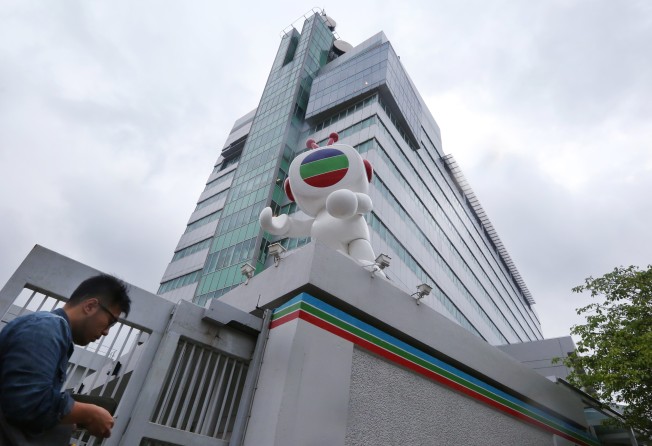City Beat: TVB's flag error can teach us a lesson in the importance of history education
Mix-up over flags reflects the importance of accurate and comprehensive history education

Like it or not, the city's dominant broadcaster still enjoys good ratings for its programmes. But more viewers also means harsh public scrutiny. A factual mistake of any kind cannot escape the eyes of its picky audience, nor can errors be excused easily.
Such was the case for a TVB documentary aired late last month commemorating the 70th anniversary of the anti-Japanese war, which unfortunately carried an incorrect graphic to depict two major battles between Chiang Kai-shek's Kuomintang and the invading Japanese. It used the red, five-starred flag of today's People's Republic to denote Chiang's forces; in reality, Mao Zedong's communists played no part in the battles depicted, though they did participate in others. The five-star flag only became the national flag after the civil war, in October 1949.
Internet users were quick to spot the error, and it was no surprise that some saw a political agenda, accusing the broadcaster of trying to "fabricate history" by ignoring the contribution of the KMT in resisting the Japanese.
TVB immediately apologised for that obvious mistake, immediately replacing the flag on its official website - only to make another mistake by replacing the Japanese national flag with the Imperial Japanese military standard. The criticism online this time was that if the national flag used by China at the time was shown, the Japanese national ensign should also be used.
Understandably, online criticism can be somewhat cynical, but to be fair to TVB, this was apparently a case of careless human error, rather than a hidden agenda on the part of the station to amend history.
TVB fired the programme director and warned the producers. But the episode demonstrated a deeper issue which warrants further reflection.
It speaks volumes that even producers at this major television station could mix up the contributions of the KMT of the Republic of China and its rival the Communist Party, which later established the People's Republic, at a time when the whole nation was facing a common enemy. On the other hand, it is also telling that some viewers had such a good grasp of history that they were able to seize on the error. History means a lot; we all need to give a factual and correct account of the past - ignorance or carelessness is not a valid excuse for inaccuracy.
Chinese history education in Hong Kong remains an issue for discussion today. Political sensitivity meant textbooks in the colonial era didn't touch on China's civil war, not to mention the period after the People's Republic was established in 1949. After the 1997 handover, Hong Kong continued, under "one country, two systems", to use its own curriculum and textbooks for all subjects.
Education authorities later, for some reason, decided to take Chinese history off the list of compulsory subjects in high school. That sparked criticism from educators and others, while the government argued many schools offered the subject in a single course that achieved the same goals.
Despite calls to bring back compulsory Chinese history, it is understandable that, in the current political atmosphere, a change of policy may take longer than people would expect. The 70th anniversary of the second world war is therefore seen by many as an opportune time to better educate Hongkongers on national history, or at least on this particularly difficult time, when Hong Kong was itself occupied by the Japanese for three years and eight months.
Meanwhile Hong Kong, as a special administrative region, could be the only city in China where activities sponsored by the government and by pro-KMT groups can co-exist. Invitations to various exhibitions and activities I have received recently well illustrate the uniqueness of our city, which is something we need to treasure, and which we could use well in terms of history education. By presenting a more complete picture of history to our younger generation, they can better understand the yesterday and today of the country, giving them a better idea of its tomorrow.